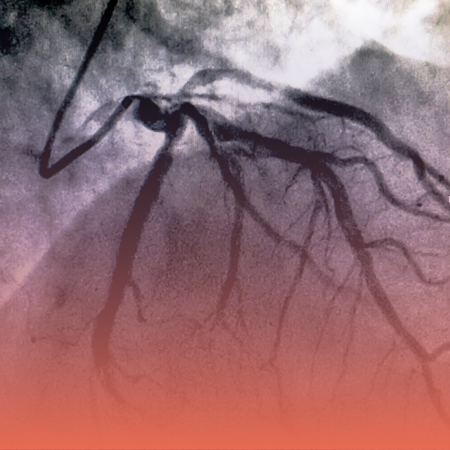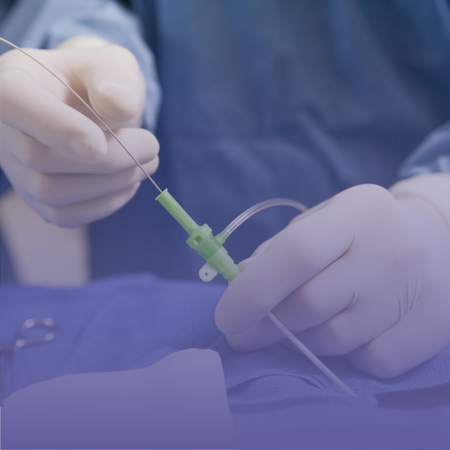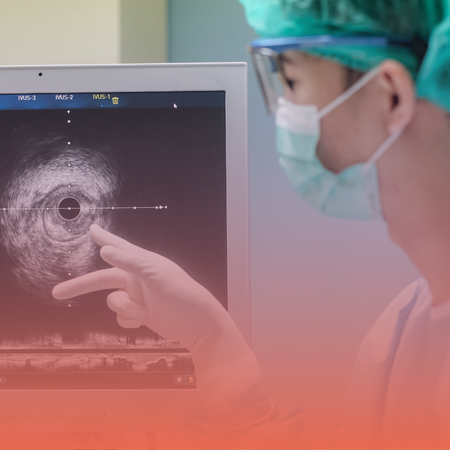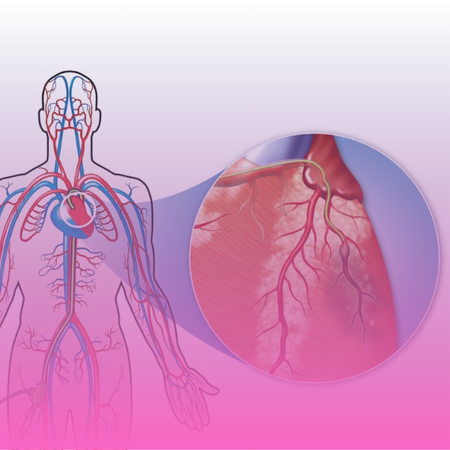

Make an
appointment
Cardiac Catheterization in Kolkata
Cardiac catheterisation is a minimally invasive procedure that allows a catheter to be directed through a blood vessel to the heart. This technique provides critical information about heart structures such as heart valves, muscles, and blood vessels. It plays a pivotal role in diagnosing and treating various heart conditions, including embolisms and arrhythmias.
Additionally, cardiac catheterisation enables doctors to perform diagnostic tests, administer treatments, or conduct a biopsy (removal of tissue for examination). It is often required for certain heart interventions, such as coronary stenting and angioplasty.
This procedure is typically performed under local anaesthesia, allowing patients to remain awake while receiving sedative medications to ensure comfort. The recovery time is relatively quick, and the procedure carries minimal risks when conducted at experienced medical centres like Kothari Medical Centre.

Procedure Type
Minimally Invasive

Specialty
Cardiology

Body Location
The Heart

Alternate Name
Catherterisation

When is Cardiac Catheterisation Needed?
Cardiac catheterisation is a standard procedure used to diagnose and treat various cardiovascular conditions. It may be recommended for patients experiencing symptoms such as arrhythmias, chest pain, or heart valve issues. Some of the conditions that may require this procedure include:
- Coronary Artery Disease (blockages or narrowing of the coronary arteries)
- Congenital Heart Disease (heart defects present from birth)
- Heart Failure (reduced pumping ability of the heart)
- Heart Valve Disease (abnormal function of heart valves)
- Microvascular Heart Disease (problems with the small blood vessels of the heart)
Role of Cardiac Catheterisation
- Identify blockages or narrowing in blood vessels causing chest pain
- Measure pressure and oxygen levels in different parts of the heart (hemodynamic assessment)
- Perform a right or left ventriculogram
- Conduct a biopsy to evaluate diseases or monitor post-heart transplant patients
- Diagnose congenital heart defects and heart valve diseases
- Diagnose congenital heart defects and heart valve diseases


Procedures Performed with Cardiac Catheterisation
Cardiac catheterisation is often conducted in conjunction with other heart procedures, including:
- Angioplasty with or without Stent Placement – to open narrowed or blocked arteries
- Cardiac Ablation – to treat irregular heart rhythms using heat or cold energy
- Balloon Valvuloplasty – to open narrowed heart valves
- Congenital Heart Defect Repairs – to close abnormal openings in the heart
- Heart Valve Surgery – to repair or replace heart valves
Diagnostic Procedures Prior to Cardiac Catheterisation
- Medical History & Physical Examination
- Angiogram – an X-ray imaging test to assess heart blood vessels
- CT or MR Angiography – for additional imaging if required
- Routine Blood Tests – including CBC, kidney function tests, haemoglobin, and platelet count


Who Are the Best Candidates for Cardiac Catheterisation?
This procedure is beneficial for both diagnostic and therapeutic purposes. Some common indications include:
- Evaluation and treatment of coronary artery disease and cardiac arrhythmias
- Assessment of coronary artery bypass grafts
- Diagnosis and treatment of unexplained chest pain
- Evaluation of valvular or myocardial disorders such as aortic stenosis, mitral stenosis, and cardiomyopathies
- Closure of congenital heart defects like atrial septal defect (ASD), patent ductus arteriosus (PDA), and ventricular septal defect (VSD)
- Treatment of valvular heart diseases using valvuloplasty or transcatheter valve replacement
Contraindications for Cardiac Catheterisation
- Uncontrolled severe hypertension
- Renal dysfunction
- Active infections or sepsis
- Recent cerebrovascular accidents
- Active bleeding disorders
- Severe coagulopathy
- Unstable arrhythmias
- Acute pulmonary oedema (if the patient cannot lie flat)
- Uncontrolled severe hypertension


Preparing for Cardiac Catheterisation
To ensure a safe procedure, the following pre-operative steps are recommended:
- Fasting: Avoid eating or drinking for at least six hours before the procedure
- Medication Review: Inform the doctor about all regular medications, particularly blood thinners and NSAIDs
- Allergy Disclosure: Notify the doctor of any allergies, especially to IV contrast dye, iodine, or latex
Why Choose Kothari Medical Centre for Cardiac Catheterisation?
At Kothari Medical Centre, we are committed to delivering high-quality cardiac care with:
- Advanced Technology: Equipped with state-of-the-art cardiac catheterisation labs
- Expert Cardiac Specialists: A team of highly skilled and experienced cardiologists
- Comprehensive Care: From diagnosis to treatment and post-procedure follow-ups
- Patient-Centric Approach: Prioritising patient safety, comfort, and well-being
For more information or to book an appointment, contact Kothari Medical Centre today.


